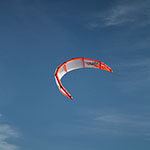Euroacademia Conferences
 Europe Inside-Out: Europe and Europeanness Exposed to Plural Observers (9th Edition) April 24 - 25, 2020
Europe Inside-Out: Europe and Europeanness Exposed to Plural Observers (9th Edition) April 24 - 25, 2020 Identities and Identifications: Politicized Uses of Collective Identities (9th Edition) June 12 - 13, 2020
Identities and Identifications: Politicized Uses of Collective Identities (9th Edition) June 12 - 13, 2020 8th Forum of Critical Studies: Asking Big Questions Again January 24 - 25, 2020
8th Forum of Critical Studies: Asking Big Questions Again January 24 - 25, 2020 Re-Inventing Eastern Europe (7th Edition) December 13 - 14, 2019
Re-Inventing Eastern Europe (7th Edition) December 13 - 14, 2019 The European Union and the Politicization of Europe (8th Edition) October 25 - 26, 2019
The European Union and the Politicization of Europe (8th Edition) October 25 - 26, 2019 Identities and Identifications: Politicized Uses of Collective Identities (8th Edition) June 28 - 29, 2019
Identities and Identifications: Politicized Uses of Collective Identities (8th Edition) June 28 - 29, 2019 The European Union and the Politicization of Europe (7th Edition) January 25 - 26, 2019
The European Union and the Politicization of Europe (7th Edition) January 25 - 26, 2019 7th Forum of Critical Studies: Asking Big Questions Again November 23 - 24, 2018
7th Forum of Critical Studies: Asking Big Questions Again November 23 - 24, 2018 Europe Inside-Out: Europe and Europeanness Exposed to Plural Observers (8th Edition) September 28 - 30, 2018
Europe Inside-Out: Europe and Europeanness Exposed to Plural Observers (8th Edition) September 28 - 30, 2018 Identities and Identifications: Politicized Uses of Collective Identities (7th Edition) June 14 - 15, 2018
Identities and Identifications: Politicized Uses of Collective Identities (7th Edition) June 14 - 15, 2018
Constructing the Other/s: Discourses on Europe and Identity in ‘First’ and ‘Other’ Serbia
-
-

-
Presentation speakers
- Ana Omaljev, University of Reading, UK
Abstract:
One of essential characteristics of the post-Milosevic transition in Serbia is that the main actors are rethinking political identities and negotiating their meanings. The existing literature shows that the representations of Serbian identity within the political discourses of ‘First’ and ‘Other’ Serbia are marked by extensive and frequent contestation. In these early years of consolidation of Serbian democracy there is no political, social and cultural consensus on key questions such as the pace of transition, post-Yugoslav conflicts and war crimes, the relationship with European Union, role of Serbian Orthodox Church in politics and many others. This research draws support from literature on identity and Europeanization, representation of traditions and narratives, which are not just invented but also actively negotiated within post-Milosevic Serbian society. This paper follows Lene Hansen’s approach which offers a deconstructive analysis of the way identity is constructed within the discourse. Thus, it examines the evolution of ‘First’ and ‘Other’ Serbia as political and societal discourses and explores how discursive processes of Othering and Self-referencing are framed in the press with special attention to the construction of representations of ‘Europe’ and ‘Kosovo’. Methodologically, this paper defines political realties mentioned above as internal to the discourse. Critical discourse analysis offers practical tools for a study of how the political identities have been thought out, written, re-written and spoken within the discourses of the ‘First’ and ‘Other’ Serbia. This paper offers an account of the dichotomy of their relationship (friend/enemy) and this highlights the pillars of politics of Othering: the Self, the Other and the degrees of Difference embedded between them. Therefore, this research aims to understand the way ‘First’ and ‘Other’ Serbia discourses produce, construct and materialise imagery surrounding terms such as ‘Europe’, and ‘Kosovo’ and how these reflect on Serbs’ self-identification. In empirical terms, the academic significance of this paper lies primarily in the research of liberal and illiberal concepts and value and belief systems that exist within the different social strata in Serbia. More specifically, it explores the way in which the images of othering are framed within the ongoing ‘Missionary Intelligentsia’ debate that was initiated in 2003 in a weekly magazine VREME, and how this discussion contributed to the further political polarisation in Serbia. It draws on extensive analysis of press and media excerpts in order to investigate two opposing narratives and political orientations of the elites, their perception of identity through primordial or instrumental lenses, and their standpoints on ‘Europe’ and mutual views on each other, all of which are highly under-researched. The questions this paper specifically addresses is what it means to be a ‘Serb’ and/or ‘European’; or to be labelled as ‘anti-Serbian’; and how the concept of ‘traitor’ or a ‘patriot’ is constructed within the ‘First’ and ‘Other’ Serbia discourses on identity. In general terms, close analysis of the quality press shows how the politics of othering makes the distinction between US and THEM and further contributes to the contestation of Serbian political identities.
-
Related Presentations

Hermetic Colony: A Colonization Metaphor in Moebius’ Work
- Delmo de Oliveira Arguelhes

















